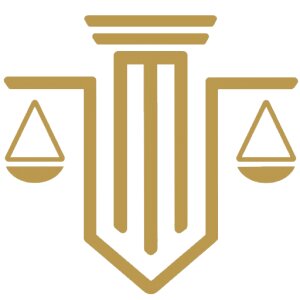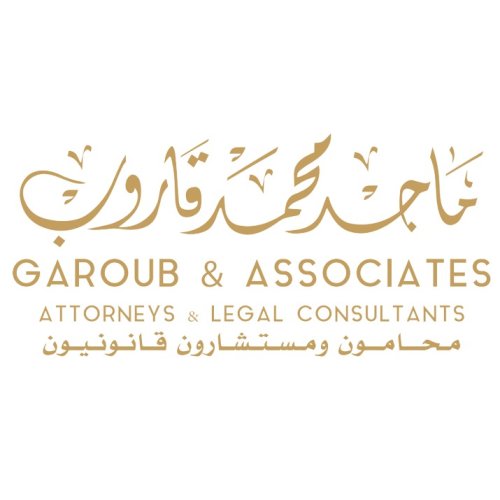Best Structured Finance Lawyers in Saudi Arabia
Share your needs with us, get contacted by law firms.
Free. Takes 2 min.
Or refine your search by selecting a city:
List of the best lawyers in Saudi Arabia
About Structured Finance Law in Saudi Arabia
Structured finance is a specialized field within finance that involves complex financial instruments designed to help organizations raise capital, manage risk, or optimize funding structures. In Saudi Arabia, structured finance plays a vital role in supporting major infrastructure projects, corporate financing, and government initiatives in alignment with Vision 2030. Structured finance solutions in the Kingdom typically include securitization, asset-backed securities, syndicated loans, sukuk (Islamic bonds), and other tailored financial products.
Saudi Arabia's financial sector has seen significant reforms in recent years, geared towards supporting structured finance transactions while ensuring compliance with Shariah law and international best practices. Regulatory bodies like the Saudi Central Bank (SAMA) and the Capital Market Authority (CMA) provide oversight and set standards for structured finance activities in the country.
Why You May Need a Lawyer
Engaging in structured finance in Saudi Arabia involves navigating intricate legal, regulatory, and compliance landscapes. Common reasons why you might need legal assistance include:
- Structuring and negotiating complex financing arrangements such as sukuk issuances or syndicated loans.
- Ensuring compliance with Saudi regulatory requirements and Shariah law principles.
- Drafting and reviewing finance agreements, prospectuses, and security documentation.
- Managing cross-border transactions and compliance with international standards.
- Resolving disputes or defaults related to structured finance products.
- Advising on taxation, risk management, and due diligence processes.
- Protecting your interests in asset transfers, securitization, and project financing.
Local Laws Overview
Saudi Arabia’s legal framework for structured finance is shaped by a combination of Shariah law, the Companies Law, the Capital Market Law, and SAMA regulations. Here are some key aspects:
- Shariah Compliance: All financial products, including structured finance instruments, must comply with Islamic finance principles. This prohibits interest (riba) and speculative activities (gharar).
- Capital Market Authority (CMA): The CMA regulates public offerings, sukuk, asset-backed securities, and other capital market activities. It sets disclosure, licensing, and operational requirements.
- Saudi Central Bank (SAMA): SAMA oversees financial institutions, bank lending activities, and broader financial stability.
- Foreign Investment Laws: The legal framework allows for foreign participation in structured finance transactions, subject to compliance with investment and licensing requirements.
- Taxation: Saudi Arabia applies specific tax rules to financing, including withholding taxes and zakat considerations for companies.
- Dispute Resolution: Disputes may be resolved through local courts or arbitration, with particular consideration for Shariah-compliant outcomes.
Frequently Asked Questions
What is structured finance and how is it used in Saudi Arabia?
Structured finance involves creating tailored financial solutions such as securitizations, sukuk, and syndicated loans. In Saudi Arabia, these instruments finance large infrastructure, energy, and real estate projects.
Do structured finance products in Saudi Arabia need to comply with Shariah law?
Yes, all financial products, including structured finance instruments, must comply with Shariah principles. This affects how contracts are structured and prohibits interest and certain risk types.
Who regulates structured finance activities in Saudi Arabia?
The main regulators are the Capital Market Authority (CMA), which oversees securities and sukuk, and the Saudi Central Bank (SAMA), which supervises financial institutions and banks.
What is a sukuk and how does it differ from traditional bonds?
Sukuk are Islamic financial certificates similar to bonds, but they represent ownership in tangible assets or projects and comply with Shariah principles by avoiding interest.
Can foreign investors participate in structured finance deals in Saudi Arabia?
Yes, foreign investors can participate, but they must comply with local investment, licensing, and partnership regulations.
What legal agreements are typically involved in a structured finance transaction?
Common documents include facility agreements, security documents, offering circulars, trust declarations, and inter-creditor arrangements.
How are disputes related to structured finance resolved in Saudi Arabia?
Disputes can be resolved through litigation in local courts, or through arbitration, provided the mechanism aligns with Saudi law and Shariah principles.
Are there tax implications for structured finance transactions?
Yes, transactions may be subject to withholding tax, VAT, corporate tax, and zakat, depending on the structure and entities involved.
What are the typical risks in structured finance deals and how are they managed?
Risks include legal compliance, counterparty default, regulatory changes, and market fluctuations. These are managed through due diligence, risk insurance, and robust legal documentation.
Why should you involve a legal advisor in structured finance matters?
A legal advisor helps structure transactions in compliance with local regulations, manages risk, protects your interests, and ensures documentation is robust and enforceable.
Additional Resources
If you require further information or professional support regarding structured finance in Saudi Arabia, consider consulting the following:
- Capital Market Authority (CMA) - Issues regulations and oversees capital markets and securities.
- Saudi Central Bank (SAMA) - Regulates banking and financial institutions.
- Ministry of Investment (MISA) - Provides guidance on foreign investment in Saudi Arabia.
- Saudi Arabian Monetary Authority publications and guidelines.
- Major international law firms with local offices in Saudi Arabia.
- Islamic finance organizations such as the Accounting and Auditing Organization for Islamic Financial Institutions (AAOIFI).
Next Steps
If you believe you require legal assistance with structured finance in Saudi Arabia, it is advisable to take the following steps:
- Identify and outline your financing needs and objectives.
- Gather all relevant documents, financial records, and information regarding the proposed transaction or issue.
- Research and contact law firms or legal advisors in Saudi Arabia with expertise in structured finance and Islamic finance.
- Schedule a consultation to discuss your particular situation and receive tailored legal advice.
- Follow your lawyer's guidance and ensure ongoing compliance with applicable laws and regulations throughout the transaction.
Taking a proactive and informed approach will help you navigate the complexities of structured finance and safeguard your interests in Saudi Arabia.
Lawzana helps you find the best lawyers and law firms in Saudi Arabia through a curated and pre-screened list of qualified legal professionals. Our platform offers rankings and detailed profiles of attorneys and law firms, allowing you to compare based on practice areas, including Structured Finance, experience, and client feedback.
Each profile includes a description of the firm's areas of practice, client reviews, team members and partners, year of establishment, spoken languages, office locations, contact information, social media presence, and any published articles or resources. Most firms on our platform speak English and are experienced in both local and international legal matters.
Get a quote from top-rated law firms in Saudi Arabia — quickly, securely, and without unnecessary hassle.
Disclaimer:
The information provided on this page is for general informational purposes only and does not constitute legal advice. While we strive to ensure the accuracy and relevance of the content, legal information may change over time, and interpretations of the law can vary. You should always consult with a qualified legal professional for advice specific to your situation.
We disclaim all liability for actions taken or not taken based on the content of this page. If you believe any information is incorrect or outdated, please contact us, and we will review and update it where appropriate.
Browse structured finance law firms by city in Saudi Arabia
Refine your search by selecting a city.

















